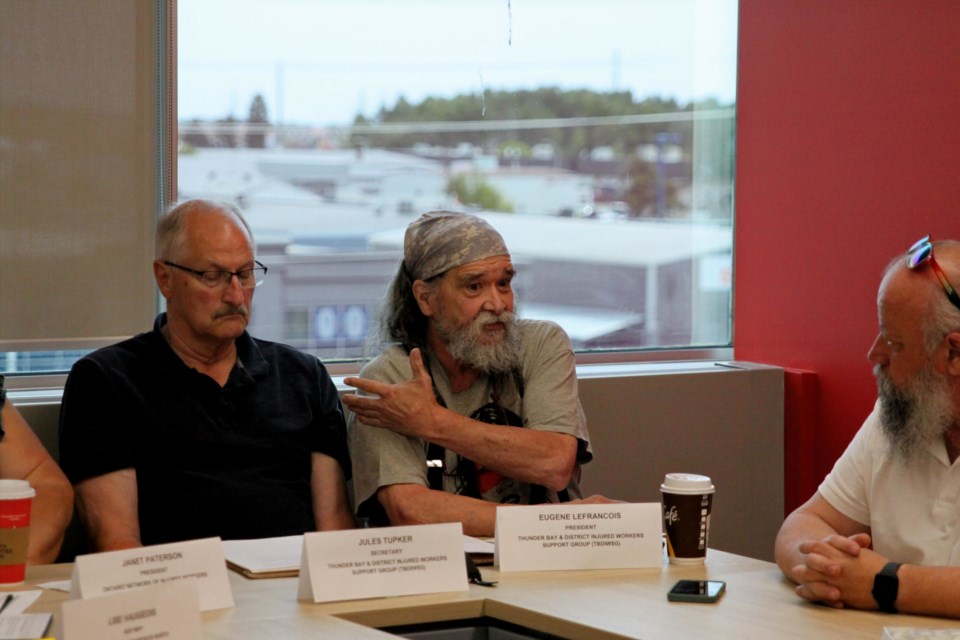THUNDER BAY— Injured workers say that age discrimination is a common concern across the province, and the time to fight for benefits is now.
Last Thursday, members of the Thunder Bay and District Injured Workers Support Group and the Ontario Network of Injured Workers Groups held a hybrid conference in support of seniors month, calling out what they say is age discrimination in the Workplace Safety and Insurance Board's system of benefits.
“Were fighting to change this, to make it better. The government's not looking after us. WSIB is not looking after us. Where do we turn to?” said Eugene Lefrancois, president of Thunder Bay’s Injured Workers support group.
“We are not supposed to be a burden on society or our family,” he said.
Since 1990, the worker’s compensation law in Ontario has limited the number of benefits available to injured workers based on age.
The mandatory retirement age of 65 was struck down in 2006 as discriminatory, and the law was repealed in 2007. The WSIB told the Ontario Human Rights Commission they needed time to make changes because of the complexities involved.
More than 18 years later, Lefrancois said they’re still fighting for the rights of aging workers.
“We are losing injured workers through suicide,” he said. “Not a good thing at all, but yet, Ford says It's our problem. No, it's not our problem. It's our society’s problem Ford, come on.”
Wage loss benefits for injured workers under 63 at the time of injury, end at age 65. While workers who are over age 63, when injured, get two years of wage loss benefits from the date of the accident and workers over the age of 63 when injured receive no WSIB benefits.
Employers in Ontario are also under no obligation to re-employ a worker aged 65 or older.
Lefrancois says because of this, many aging workers across the province are currently struggling with food, housing and health insecurities.
Although WSIB offers more benefits to injured workers under age 45, when workers are injured early on in their careers they still lose the pensions they would have otherwise earned, forcing many into poverty later in life, he said.
“You have all that time that you were supposed to put in your old age pension,” he said “What do you got at the end? You got five per cent of your entire earnings… from WSIB put into a fund.”
“So, despair and poverty,” he said.
Lefrancois said the harshest part is being ignored by the government, with little to no communication, no changes have been seen by the aging workers.
“You don't talk to us, you refuse to talk to us, you tell your ministers of labour to not talk to us, so who do we talk to,” he said.
“A leader is supposed to lead everyone, you are not supposed to cut half the crowd.”
